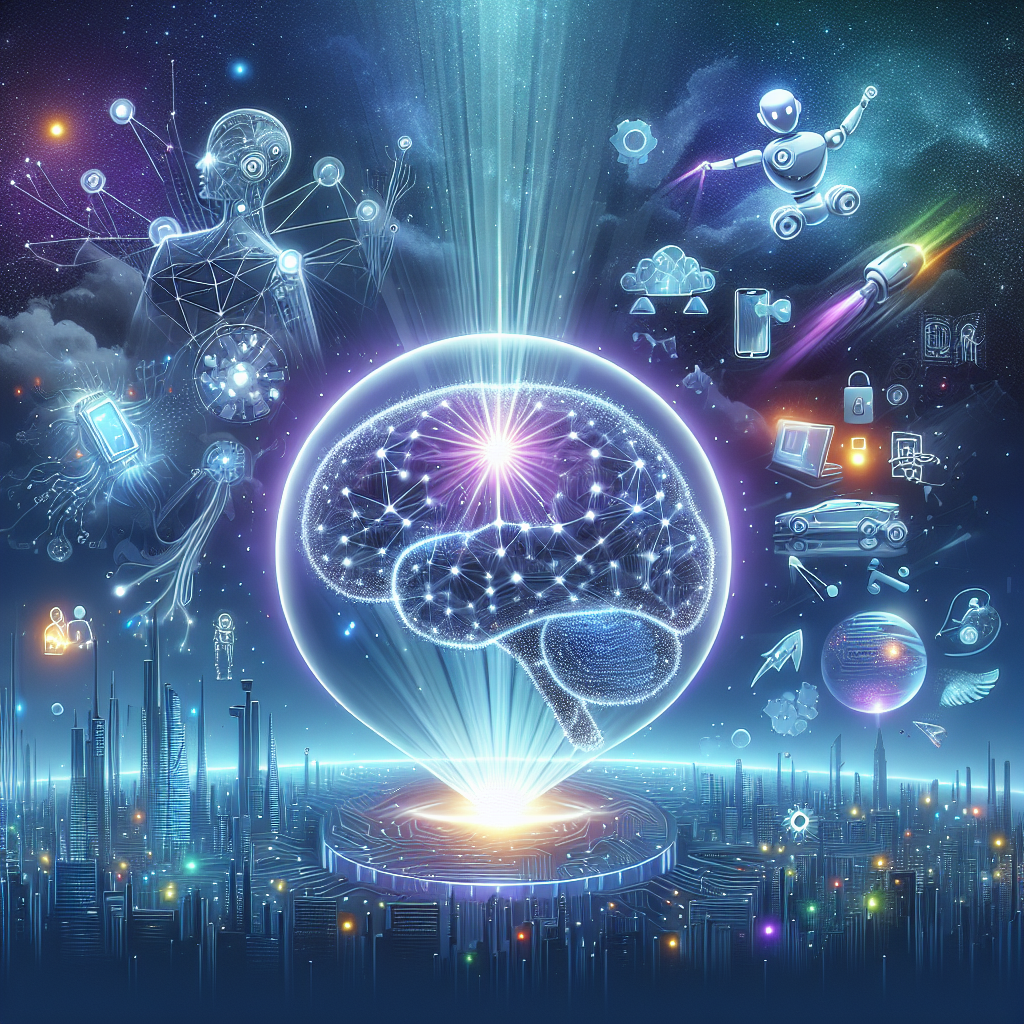Artificial General Intelligence (AGI) is a topic that has been gaining increasing attention in recent years. As we continue to make advancements in the field of artificial intelligence (AI), the concept of AGI has become a focal point for many researchers, scientists, and technology enthusiasts. AGI refers to a form of AI that possesses the ability to understand, learn, and apply knowledge in a way that is comparable to human intelligence.
The development of AGI has the potential to revolutionize the way we live and work, with implications for nearly every aspect of society. From healthcare to transportation, from education to entertainment, AGI has the power to transform our world in ways that we have only begun to imagine. In this article, we will explore the concept of AGI, its potential applications, and the impact it may have on the future of technology.
What is Artificial General Intelligence (AGI)?
Artificial General Intelligence, also known as strong AI or full AI, refers to AI systems that possess the ability to perform any intellectual task that a human can. Unlike narrow AI, which is designed to perform specific tasks or solve particular problems, AGI is intended to exhibit general intelligence and cognitive abilities that are comparable to or exceed those of humans.
The development of AGI involves creating AI systems that can understand and reason about complex information, learn from experience, and adapt to new situations. This requires a high level of cognitive flexibility, problem-solving skills, and the ability to apply knowledge to a wide range of tasks. AGI systems are designed to be autonomous, self-learning, and capable of performing a wide variety of tasks without human intervention.
Applications of AGI
The potential applications of AGI are vast and varied, with implications for nearly every industry and aspect of society. Some of the key areas where AGI could have a transformative impact include:
Healthcare: AGI has the potential to revolutionize healthcare by improving diagnosis, treatment, and patient care. AGI systems could analyze medical data, identify patterns and trends, and provide personalized treatment recommendations. They could also assist in surgery, drug discovery, and medical research.
Transportation: AGI could revolutionize transportation by enabling autonomous vehicles that can navigate complex environments, make real-time decisions, and adapt to changing conditions. AGI systems could improve traffic flow, reduce accidents, and enhance the efficiency of transportation networks.
Education: AGI could transform education by personalizing learning experiences, adapting to each student’s needs and abilities, and providing individualized feedback and support. AGI systems could create interactive learning environments, develop custom curricula, and assist teachers in delivering personalized instruction.
Entertainment: AGI could enhance the entertainment industry by creating immersive virtual worlds, interactive storytelling experiences, and personalized content recommendations. AGI systems could generate music, art, and literature, and design video games that adapt to the player’s actions and preferences.
Business: AGI could revolutionize the business world by automating routine tasks, optimizing processes, and making data-driven decisions. AGI systems could improve customer service, enhance marketing strategies, and streamline operations in a wide range of industries.
Challenges and Considerations
While the potential benefits of AGI are vast, there are also significant challenges and considerations that must be addressed in order to realize its full potential. Some of the key challenges include:
Ethical considerations: AGI raises important ethical questions related to privacy, security, bias, and accountability. As AGI systems become more autonomous and intelligent, it is essential to ensure that they are developed and used in a responsible and ethical manner.
Safety and reliability: AGI systems must be designed to operate safely and reliably in a wide range of environments and situations. Ensuring the safety and reliability of AGI systems is a complex and challenging task that requires careful design, testing, and monitoring.
Regulation and oversight: As AGI technology continues to advance, it is important to establish regulations and oversight mechanisms to ensure that it is used in a responsible and transparent manner. Regulation can help mitigate risks, protect privacy, and ensure that AGI benefits society as a whole.
FAQs
Q: What is the difference between AGI and narrow AI?
A: AGI refers to AI systems that possess general intelligence and cognitive abilities that are comparable to or exceed those of humans. Narrow AI, on the other hand, refers to AI systems that are designed to perform specific tasks or solve particular problems. While narrow AI is highly specialized and limited in scope, AGI is intended to exhibit general intelligence and adaptability.
Q: When will AGI be developed?
A: The development of AGI is a complex and challenging task that is still in its early stages. While significant progress has been made in the field of AI, the creation of AGI remains a long-term goal that may take decades to achieve. Researchers and scientists are actively working on advancing the state of the art in AI and exploring new approaches to developing AGI.
Q: What are the potential risks of AGI?
A: AGI raises important ethical, safety, and security concerns that must be addressed in order to realize its full potential. Some of the key risks of AGI include the potential for unintended consequences, misuse of AI technology, and the impact on jobs and the economy. It is essential to carefully consider these risks and develop strategies to mitigate them as AGI technology continues to advance.
In conclusion, Artificial General Intelligence has the potential to revolutionize the way we live and work, with implications for nearly every aspect of society. The development of AGI is a complex and challenging task that requires careful consideration of ethical, safety, and regulatory issues. By addressing these challenges and working together to advance the state of the art in AI, we can harness the power of AGI to shape a brighter future for all.

